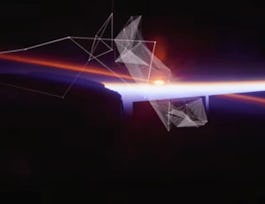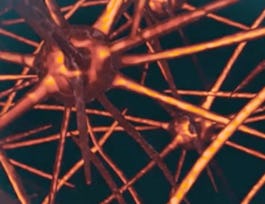How are astronomers approaching their search for life in the universe? What have we learned from the surge of exoplanets discoveries? How likely is it that Earth does not host the only life in the Universe? In this course we explore the field of astrobiology, an emerging multidisciplinary field. Progress in astrobiology is driven by telescopes on the ground and in space, and by new insights on how life emerged on Earth and its diversity. The topics in this course range from the science of how exoplanets are detected, to the chemistry that supports the argument that the ingredients for life are common in the Universe.



Astrobiology: Exploring Other Worlds

Instructor: Chris Impey
Sponsored by Taipei Medical University [C4CB]
34,540 already enrolled
(490 reviews)
Skills you'll gain
Details to know

Add to your LinkedIn profile
46 assignments
See how employees at top companies are mastering in-demand skills


Earn a career certificate
Add this credential to your LinkedIn profile, resume, or CV
Share it on social media and in your performance review

There are 6 modules in this course
Students will learn about planet formation by examining our own solar system and how these basic principles apply to exoplanets (planets around other stars).
What's included
9 videos1 reading7 assignments
Students will learn about how astronomers look for planets around other stars, why it is so difficult to find them, and what we can learn about the properties of planets from each detection method.
What's included
7 videos6 assignments1 peer review
Students will learn about the features of stars and exoplanets that might promote the development of life outside of Earth.
What's included
7 videos6 assignments1 peer review
Students will learn about the biological history of Earth, how life can develop and thrive in extreme conditions, and where else in the universe life might exist.
What's included
8 videos7 assignments
Students will learn about the development of complex organisms on Earth and the biological processes that led to species evolving intelligence.
What's included
7 videos6 assignments1 peer review
Students will learn about the possibilities of finding intelligence species on other planets, and the challenges of interplanetary and interspecies communication and exploration.
What's included
9 videos14 assignments1 peer review
Instructor

Offered by
Why people choose Coursera for their career




Learner reviews
490 reviews
- 5 stars
91.83%
- 4 stars
6.12%
- 3 stars
0.61%
- 2 stars
0.20%
- 1 star
1.22%
Showing 3 of 490
Reviewed on Aug 23, 2020
Absolutely mind-blowing Course. Professor Chris had done a great job. I admired his teaching from the start to the end. Thank you so much for providing such an amazing course.
Reviewed on Jul 18, 2022
Excellent course by Prof.Chris Impey. If you want a deeper overall understanding of Astronomy, I would recommend the other course by the same professor.
Reviewed on May 11, 2024
A great way to start learning about astrobiology! I feel as though I've gained a lot a knowledge about astronomy, planetary science, and biology. Plus the assignments were fun.
Recommended if you're interested in Physical Science and Engineering

Dartmouth College

Dartmouth College

Open new doors with Coursera Plus
Unlimited access to 10,000+ world-class courses, hands-on projects, and job-ready certificate programs - all included in your subscription
Advance your career with an online degree
Earn a degree from world-class universities - 100% online
Join over 3,400 global companies that choose Coursera for Business
Upskill your employees to excel in the digital economy



